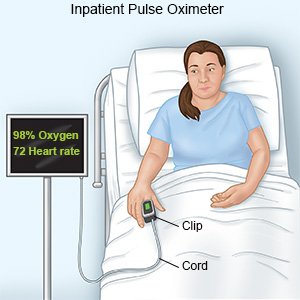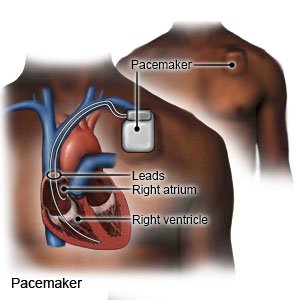A-Fib (Atrial Fibrillation)
Medically reviewed by Drugs.com. Last updated on Aug 4, 2025.
Atrial fibrillation (A-fib) is an irregular heartbeat. It reduces your heart's ability to pump blood through your body. A-fib may come and go, or it may be a long-term condition. A-fib can cause blood clots, stroke, or heart failure. These conditions may become life-threatening. It is important to treat and manage A-fib to help prevent a blood clot, stroke, or heart failure.
 |
WHILE YOU ARE HERE:
Informed consent
is a legal document that explains the tests, treatments, or procedures that you may need. Informed consent means you understand what will be done and can make decisions about what you want. You give your permission when you sign the consent form. You can have someone sign this form for you if you are not able to sign it. You have the right to understand your medical care in words you know. Before you sign the consent form, understand the risks and benefits of what will be done. Make sure all your questions are answered.
Medicines:
You may receive any of the following:
- Beta-blockers help slow your heartbeat.
- Calcium channel blockers help slow your heartbeat.
- Antiarrhythmics help make your heart rhythm regular.
- Blood thinners help prevent blood clots. Blood thinners may be given before, during, and after a surgery or procedure. Blood thinners make it more likely for you to bleed or bruise.
Monitoring:
- Pulse oximetry measures how much oxygen is in your blood.

- Telemetry is continuous monitoring of your heart rhythm. Sticky pads placed on your skin connect to an EKG machine that records your heart rate and rhythm.
Tests:
- A chest x-ray shows the structure of your heart and lungs. It may show if another condition is causing your symptoms.
- Blood and urine tests check for infection, potassium and calcium levels, and thyroid function.
- An EKG records your heart rhythm and how fast your heart beats.
- An echocardiogram is a type of ultrasound. Sound waves are used to show the structure and function of your heart.
Treatment:
- Cardioversion is a procedure to return your heart rate and rhythm to normal. It can be done using medicines or electric shock.
- A-fib ablation is a procedure that uses energy to burn a small area of heart tissue. This creates scar tissue and prevents electrical signals that cause A-fib. You may need this procedure more than 1 time. Ask for more information on A-fib ablation.
- A pacemaker may be inserted into your heart. A pacemaker is a device that controls your heartbeat. A pacemaker may be inserted during an ablation procedure or surgery. Ask your healthcare provider for more information on pacemakers.

- Surgery may be needed if other procedures do not work. During surgery your healthcare provider will make cuts in the upper part of your heart. The provider will stitch the cuts together to create scar tissue. The scar tissue will prevent electrical signals that cause A-fib.
Treatment options
The following list of medications are related to or used in the treatment of this condition.
RISKS:
Treatment may fail to control your heart rate and rhythm. A-fib can increase your risk of heart failure and other heart conditions. A-fib may cause heart attack, heart failure, blood clots, or a stroke. These conditions can be life-threatening.
CARE AGREEMENT:
You have the right to help plan your care. Learn about your health condition and how it may be treated. Discuss treatment options with your healthcare providers to decide what care you want to receive. You always have the right to refuse treatment.© Copyright Merative 2025 Information is for End User's use only and may not be sold, redistributed or otherwise used for commercial purposes.
The above information is an educational aid only. It is not intended as medical advice for individual conditions or treatments. Talk to your doctor, nurse or pharmacist before following any medical regimen to see if it is safe and effective for you.
Learn more about A-Fib
Treatment options
Care guides
Symptoms and treatments
Medicine.com guides (external)
Further information
Always consult your healthcare provider to ensure the information displayed on this page applies to your personal circumstances.
